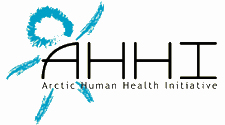Project Listing
Education Outreach and Communication
|
Title: The Circumpolar Health and Wellbeing (CHW): Research programme for Circumpolar Health and Wellbeing (RCHW), Graduate School of Circumpolar Wellbeing, Health and Adaptation (GCHW), and International Joint Master’s Program in Circumpolar Health and Wellbeing (MCHW) |
Summary of Activity
Climate change may increase the frequency and intensity of extreme weather events in the future. Marked health effects are expected by short-term climatic variability in the context of the long-term climate change. Knowledge about the links between climate and human health has increased considerably, but there are still many open questions about likely future consequences of exposure to climatic-environmental changes, and its adverse health effects. Northern societies and populations have many specific features influencing human health and wellbeing. Research on these influences is young but it is already able to show that prevention and care of sicknesses need specific applications in the north. CHW-project targets to improve scientific knowledge, societal implications and higher education in master and doctoral degree level in the aforementioned areas, where change is likely to occur as a result of global climate change and the vast societal changes taking place in arctic societies. The project consists of three areas: 1) Research Programme of Circumpolar Health and Wellbeing (RCHW), 2) Graduate School of Circumpolar Wellbeing, Health and Adaptation (GCHW) and 3) Joint International Master Programme of Circumpolar Wellbeing and Health (MCHW). The RCWH aims to improve sustainable development of health and wellbeing in the circumpolar regions. The priority research areas are 1) Risks, Stress and Adaptation (performance, symptoms, diseases, injuries, mortality), 2) Health and Health Care (elderly, children, rural population), 3) Humanistic Approach to Wellbeing (minority languages, minority identities, anthropology and history, societies). These areas link to the IPY –themes. RCHW subprojects focus on impacts of climate on human health, causal relationships, risk assessment, evaluation of population vulnerability and adaptive capacity, and the development of preventive measures and tools. The GCHW aims to increase the number of high-quality researchers and experts who are familiar with the health and wellbeing problematics related to circumpolar areas and can use a multidisciplinary approach to find new solutions to ensure our wellbeing in the future. The focus areas of education are closely connected to the thematic areas of the RCHW. The Graduate School is starting its second four-year period in 2007. During this time period until 2010, the research training for doctoral students will be linked to IPY –themes. The two-year interdisciplinary MCHW is international and will consist of multiform studies leading to master’s degree in the different participating universities. MCHW graduates will be capable to act in multiprofessional contexts, e.g. in administrative and managerial positions in health care services, as well as in education, development, planning,, international collaboration and research. MCHW will also provide the graduates with knowledge and skills for doctoral studies and research, as MCHW has a connection to post-graduate level through GCHW.
Contact:
Research Professor Juhani Hassi
Centre for Arctic Medicine, Thule Institute, University of Oulu
P.O. Box 5000 (postal address)
Aapistie 1 (street address), University of Oulu
FIN-90014
Finland
Tel: +358 8 537 6200
Mobile: no
Fax: +358 8 5376203
Email: juhani.hassi@oulu.fi
© 2006, Arctic Human Health Initiatives
All rights reserved.
